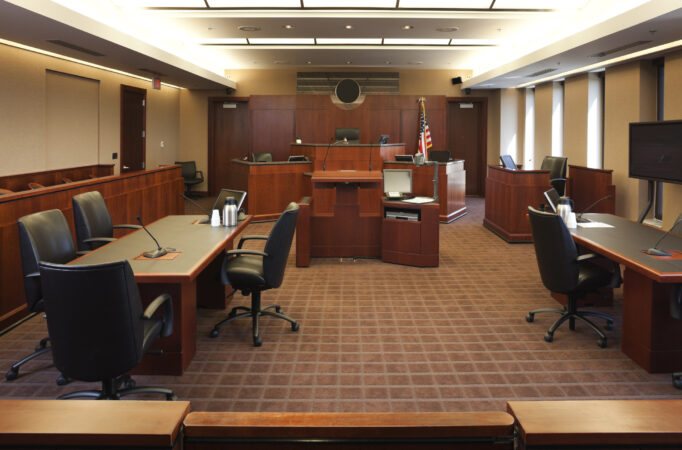Litigation: Latest Legal Blogs and News
Is Evidence of a Plaintiff’s Contributory Negligence Admissible in a Strict Product Liability Action? PA Federal Court Allows It, But only for Limited Purposes
Strict product liability generally focuses on the product itself, not the negligent conduct of the defendant, and as a result, defendants often are precluded from relying on certain negligence concepts in defending strict liability actions. A plaintiff’s comparative fault or contributory negligence, for example, generally may not be used to excuse a product’s defects or reduce a defendant’s fault. A recent decision from the U.S. District Court for the Middle District of Pennsylvania makes clear, however, that evidence of a plaintiff’s negligent conduct may be admissible in a strict product liability case under limited circumstances. Dodson v. Beijing Capital Tire Co., 2017 U.S. Dist. LEXIS 158484, at *8-13 (M.D. Pa. Sep. 27, 2017). Because such evidence can be powerful in defending these types of actions, it is important to understand when and why it may be admissible.
Dodson arose out of injuries plaintiff suffered while mounting and inflating a tire manufactured by Beijing Capital Tire Co. (“BCT”) during his employment as a technician. The tire ruptured, allegedly causing severe injuries to plaintiff, including loss of use of his dominant arm. Id. at *2. Plaintiff sued BCT for strict liability predicated on a design defect theory and also asserted a negligence claim against the tire distributor. At trial, plaintiff moved to preclude evidence of plaintiff’s own misconduct, negligence, or recklessness, arguing that Pennsylvania law “precludes a defendant in a strict liability case from raising the plaintiff’s negligence as a defense to liability or causation.” Id. at *9. The court rejected the argument, finding (i) plaintiff’s negligence claim requires consideration of contributory negligence and (ii) a properly instructed jury can separate the issue of evidence on contributory negligence from consideration of plaintiff’s theory premised on strict liability. Id. at *11.
More interesting, however, is that the court’s decision is not predicated solely on the evidence’s relevance to plaintiff’s negligence claim. The court expressly addressed the issue of whether evidence of contributory negligence also is relevant in defending a strict liability claim. BCT argued that such evidence is relevant to causation, “as manufacturers must anticipate the expected use of a product.” Evidence of product misuse goes directly to proximate cause. The court agreed and held that when proximate cause is at issue, “even in an action for strict liability, evidence bearing on causation is relevant.” Id. at *12. Accordingly, “[e]vidence of misuse, including unforeseeable, outrageous, and extraordinary use of a product, is admissible in considering the causation element of a strict liability design defect claim.” Id. at *11-12.
In defending a strict product liability action premised on a design defect, defendants should consider whether plaintiff’s negligent conduct – misuse of the product, for example – is significant enough to break the chain of causation between the design of the product and plaintiff’s injury. As the court in Dodson recognizes, “[a]lthough evidence of a user’s negligence cannot be introduced at trial to excuse a defective product or reduce recovery by comparing fault,” evidence of a plaintiff’s negligence may be relevant and admissible as it relates to causation.
About Us
The litigation attorneys at Houston Harbaugh, P.C., are accomplished business trial lawyers, providing comprehensive support in litigation across a broad spectrum of matters throughout Pennsylvania, West Virginia, Ohio and other jurisdictions upon a special admission basis. Our clients are regional and national small, medium and large companies and individuals who seek well planned and aggressive, but cost effective litigation. We counsel, we budget, we have a deep bench, we act quickly when needed and we have experienced trial lawyers who know the courts and bench. We serve regularly as local counsel for some of the largest law firms in the country when they have matters in this region.

Henry M. Sneath - Practice Chair
Co-Chair of Houston Harbaugh’s Litigation Practice, and Chair of its Intellectual Property Practice, Henry Sneath is a trial attorney, mediator, arbitrator and Federal Court Approved Mediation Neutral and Special Master with 98 trial verdicts and extensive federal and state court trial experience in cases involving commercial disputes, breach of contract litigation, Artificial Intelligence (AI), intellectual property matters, patent, trademark and copyright infringement, trade secret misappropriation, DTSA claims, cyber security and data breach prevention, mitigation and litigation, employment and restrictive covenant litigation, probate trusts and estates litigation, construction claims, eminent domain, professional negligence lawsuits, pharmaceutical, products liability and catastrophic injury litigation, insurance coverage, and insurance bad faith claims. DTSALaw® Business Litigation. Pittsburgh Strong.®

Samuel H. Simon - Practice Chair
As co-chair of Houston Harbaugh’s Litigation Group, Sam focuses his practice on commercial/business litigation. Sam regularly represents clients in the construction, manufacturing, oil and gas, and wholesale/retail/ distribution industries, as well as individuals in matters such as:
- Construction litigation
- Environmental litigation
- Breach of contract disputes
- Oil and gas litigation
- Negligence
- Restrictive covenants (non-compete agreements)
- Civil rights
- Collections/creditors’ rights
- Lease disputes

